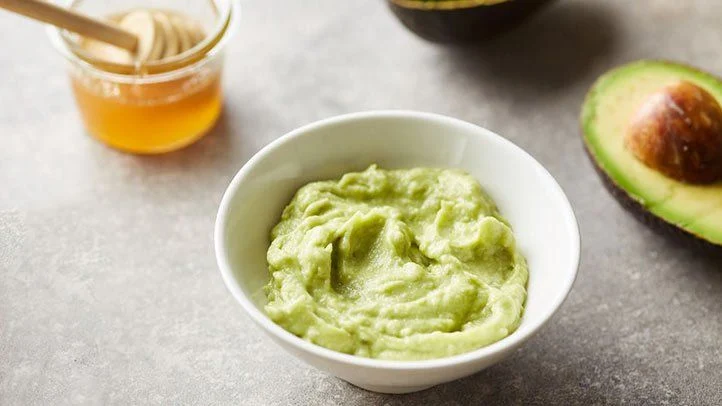HOW TO LIGHTEN YOUR DARK LIPS NATURALLY AT HOME

DARK LIPS
A variety of lifestyle and medical factors can lead to darker lips. Continue reading to find out about the causes and home remedies for darkening your lips.
CAUSES OF DARK LIPS
Hyperpigmentation can cause the darkening of the lips. Hyperpigmentation is usually harmless and caused by excess melanin. Hyperpigmentation of the lips can be caused by:
- Excessive Sun Exposure
- Lack of Hydration
- cigarette smoking
- Allergies to lipstick, toothpaste, and other cosmetics
- too much caffeine
- lip sucking
Many of these conditions can be fixed by making lifestyle changes such as changing toothpaste brands, wearing sunscreen, and limiting caffeine intake.
This can also lead to darker lips.
- chemotherapy
- anemia
- vitamin deficiency
- excessive fluoride use
HOW DO YOU LIGHTEN DARK LIPS?
Hyperpigmentation can be treated cosmetically. Lip hyperpigmentation is often treated with laser treatments or chemicals such as kojic acid and hydroquinone. Many treatments for hyperpigmentation work by blocking an enzyme that makes melanin.
However, you might be able to find a natural lipstick lightener that suits you. These are some things to think about.
LEMON
Citrus fruit peels may be melanin-inhibitors, according to a 2002 study. Just before you go to bed, slice a lemon and rub the juice over your lips. Cool water should be used to rinse your lips the next day. You can repeat this process every night until you start to see results. It could take up to 30 days.
SUGAR AND LEMON
Cut a wedge of lemon and dip it into sugar before you go to bed. The sugared lemon should be rubbed onto your lips. Rinse your lips with warm water the next day.
LIME
Another citrus fruit with anti-melanin potential is lime. Mix the following ingredients in a small bowl:
- 1 1/2 teaspoons fresh lime juice
- 1 teaspoon honey
- 1 teaspoon glycerin
Before you go to bed, gently apply the mixture to your lips. The next morning, wash your lips.
TURMERIC
A 2010 study found that turmeric could act as a melanin inhibitor. Mix the following ingredients in a small bowl:
- 1 tablespoon milk
- enough turmeric paste to make
Use a damp fingertip to rub the paste onto your lips. Let the paste sit for five minutes, then rinse it off gently with cool water. Apply your favorite moisturizer after drying your lips.
ALOE
A source older than this suggests that melanin production is inhibited by a compound found in aloe. Apply a thin layer each day of aloe vera gel to your lips. After it has dried, wash it with warm water.
POMEGRANATE
In 2005, a study showed that pomegranate extract can lighten hyperpigmentation. Mix the following ingredients together to make this remedy:
- 1 tablespoon pomegranate seeds
- 1 teaspoon rosewater
- 1 Tablespoon fresh dairy cream
For three minutes, gently massage the paste onto your lips. Rinse your lips with cool water. Repeat daily.

OTHER NATURAL REMEDIES
These home remedies can be used to lighten dark lips. To determine their effectiveness, however, further research is necessary. This is something you should keep in mind when trying them.
- Coconut oil. Use your fingertip to apply a small amount of coconut oil evenly on your lips. This can be done several times throughout the day, as well as before going to bed at night.
- Rosewater. Combine two drops of rosewater with six drops of honey. This mixture can be applied to your lips up to four times a day. This mixture can also be used before you go to sleep at night.
- Olive oil. Massage a few drops of olive oils onto your lips before you go to bed.
- Cucumber juice. Juice half of a cucumber in a blender. Then, cool the juice in the fridge. After the juice has cooled, dip a cotton ball into it. Use the cotton ball to apply the juice to your lips. Let the cucumber juice sit on your lips for approximately 30 minutes before rinsing with cool water.
- Strawberry. Mix five medium-sized, crushed strawberries with 2 teaspoons baking soda to make a paste. Apply the paste to your lips before going to bed. Rinse off the paste with cool water.
- Almond. Combine 1 tablespoon of fresh milk cream with enough almond powder in a small bowl to create a paste. The paste should be applied to your lips for 3 to 5 minutes. Allow it to dry for five minutes. Rinse the lips with warm water. This process should be repeated daily.
- Use almond oil. Apply a few drops of almond oil to your lips every night before you go to bed.
- Sugar. Combine 3 tablespoons of sugar with 2 teaspoons of butter. Massage this mixture onto your lips three times per week for between 3 and 4 minutes. You can also substitute butter with olive oil if you wish.
- Mustard oil. Massage your lips with one to two drops of mustard oils once a day.
- Use a food processor to grind the beetroot. Apply the beet paste twice a week to your lips. Let the beet paste sit on your lips for five to ten minutes before you rinse it off. Apply a thin layer of petroleum jelly to your lips once they are dry.

THE TAKEAWAY
Personal cosmetic preferences can affect the color and shape of your lips. If you have lip hyperpigmentation, there are natural remedies that can lighten your lips.
Before deciding on the treatment, talk to your doctor. Your doctor can also help you determine the root cause of darker lips.







